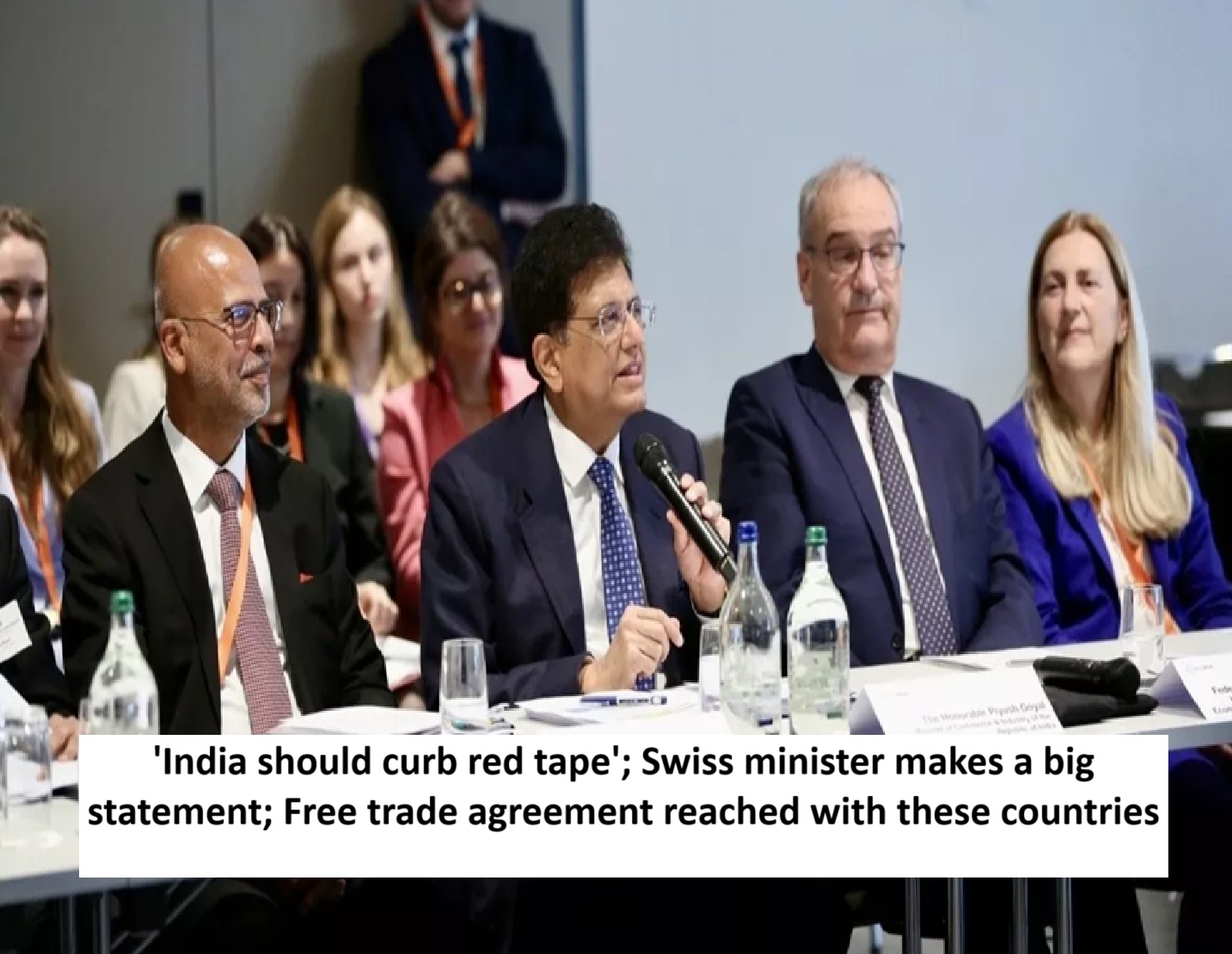
News Topical, Digital Desk : Switzerland's Economic Affairs Minister Helenie Blijder Arteda has said that India is a very suitable and preferred place for investment. But India will have to make changes in its regulatory system and curb red tape to attract more and more investments.
He said that many entrepreneurs from Switzerland complain to him that there is too much red tape in India. Under the Free Trade Agreement (FTA) with India, there is an agreement to invest $100 billion in India in the next 15 years, but to achieve this we need a framework and to reduce India's red tape as much as possible.
Continuous efforts for 11 years
He said that because of India's democracy, we give priority to India and we also trust India. On the other hand, India's Commerce and Industry Minister Piyush Goyal said that our agreement for investment of 100 billion dollars has been done under the current regulatory system. As far as easing business rules is concerned, such efforts are being made continuously for the last 11 years under the leadership of Prime Minister Narendra Modi.
He said that an investment of $100 billion will create a business of $500 billion and it is expected that this investment will directly provide employment to 1 million people. In their interaction with Goyal in Switzerland, the entrepreneurs also highlighted the problems of land availability and logistics in India. Late on Tuesday evening, Goyal addressed more than 1500 entrepreneurs in Bern, the capital of Switzerland.
Free trade agreement with four countries
- India has signed a free trade agreement with four countries associated with the European Free Trade Association (Efta) which include Switzerland, Norway, Iceland and Liechtenstein. These four countries are different from the free trade agreement with the European Union. The most prominent country among them is Switzerland. The FTAs signed during the Congress regime caused losses Goyal said that the free trade agreements signed during the Congress regime did not increase the country's exports. On the contrary, we suffered losses.
- Due to FTAs with Japan and ASEAN countries, our imports from those countries increased a lot and our exports did not increase. We kept importing raw materials at a higher price and started importing finished goods at a lower rate. This affected our manufacturing. But now whatever FTAs we are doing, we are doing them on an equal level and soon a trade agreement can be signed between India and the European Union.
--Advertisement--

 Share
Share



